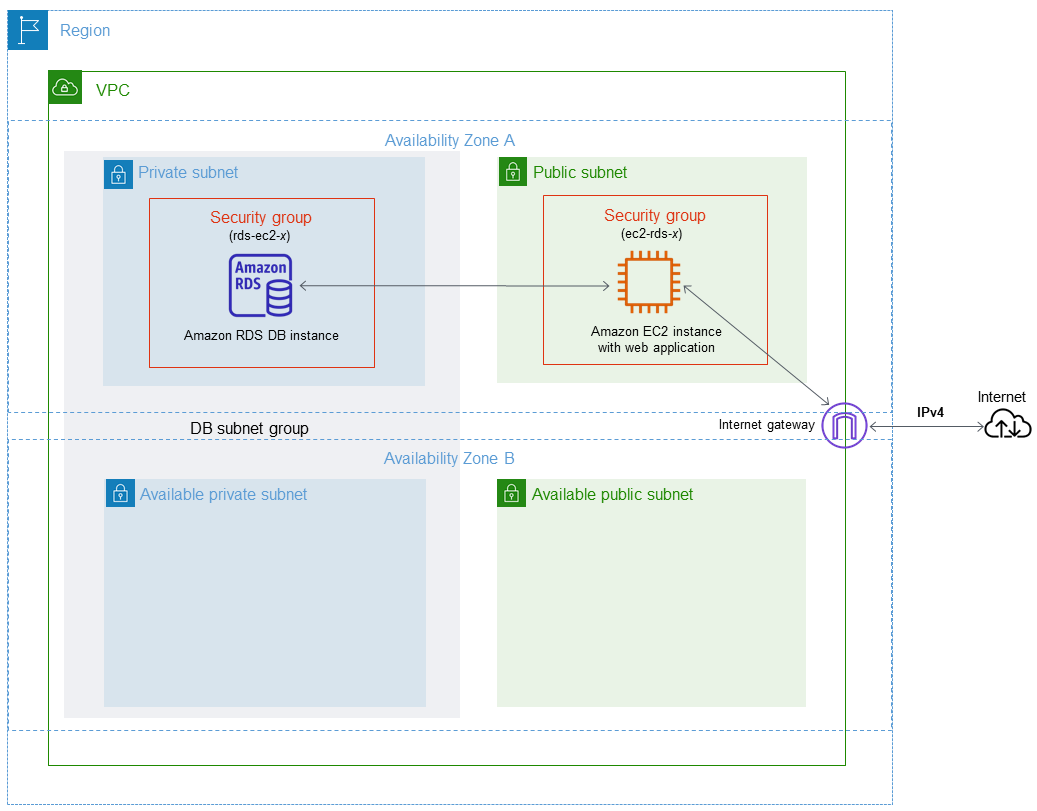Tutorial: Create a web server and an Amazon RDS DB instance
This tutorial shows you how to install an Apache web server with PHP and create a MariaDB, MySQL, or PostgreSQL database. The web server runs on an Amazon EC2 instance using Amazon Linux 2023, and you can choose between a MySQL or PostgreSQL DB instance. Both the Amazon EC2 instance and the DB instance run in a virtual private cloud (VPC) based on the Amazon VPC service.
Important
There's no charge for creating an Amazon account. However, by completing this tutorial, you might incur costs for the Amazon resources you use. You can delete these resources after you complete the tutorial if they are no longer needed.
Note
This tutorial works with Amazon Linux 2023 and might not work for other versions of Linux.
In the tutorial that follows, you create an EC2 instance that uses the default VPC, subnets, and security group for your Amazon Web Services account. This tutorial shows you how to create the DB instance and automatically set up connectivity with the EC2 instance that you created. The tutorial then shows you how to install the web server on the EC2 instance. You connect your web server to your DB instance in the VPC using the DB instance endpoint.
The following diagram shows the configuration when the tutorial is complete.

Note
After you complete the tutorial, there is a public and private subnet in each Availability Zone in your VPC. This tutorial uses the default VPC for your Amazon Web Services account and automatically sets up connectivity between your EC2 instance and DB instance. If you would rather configure a new VPC for this scenario instead, complete the tasks in Tutorial: Create a VPC for use with a DB instance (IPv4 only).